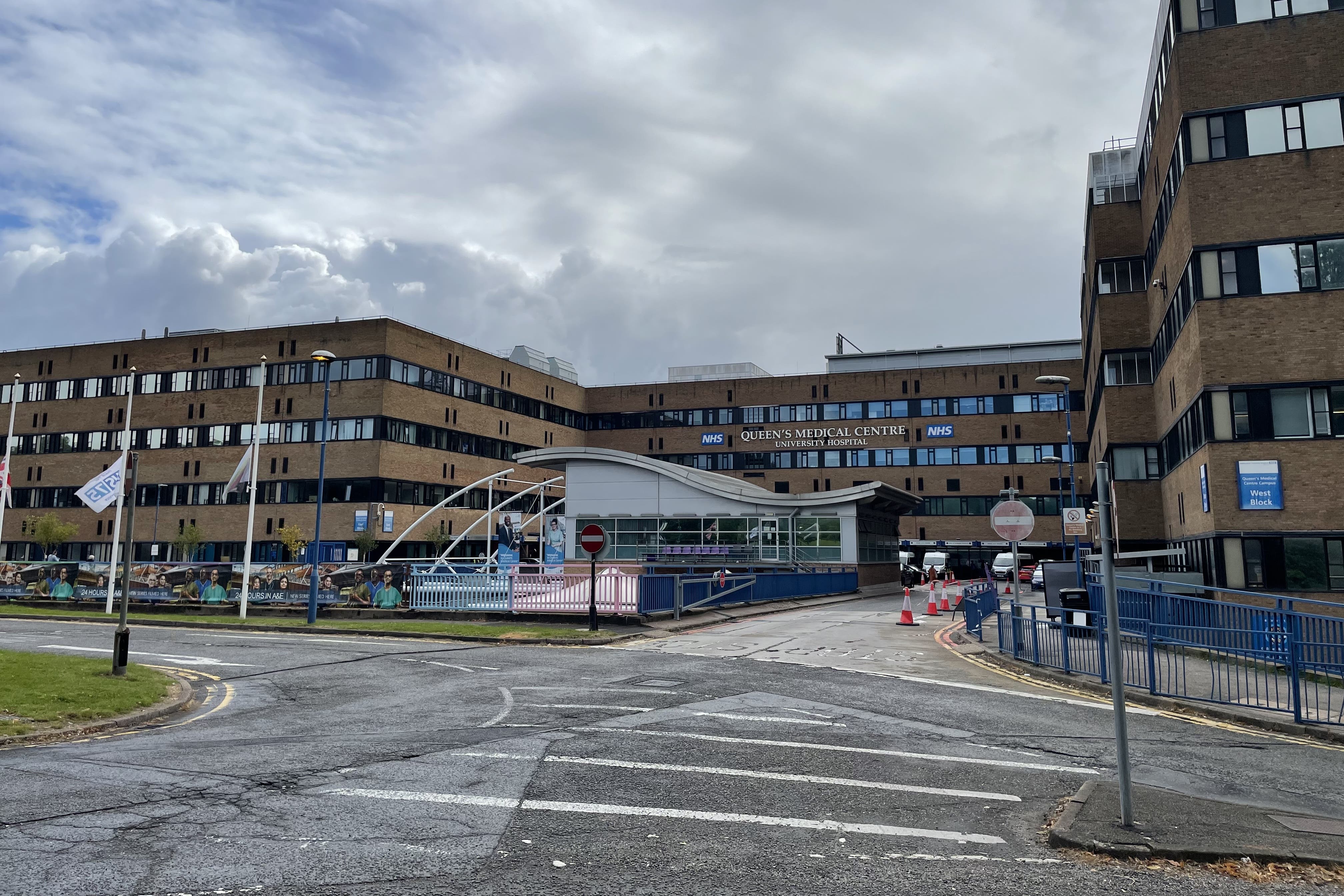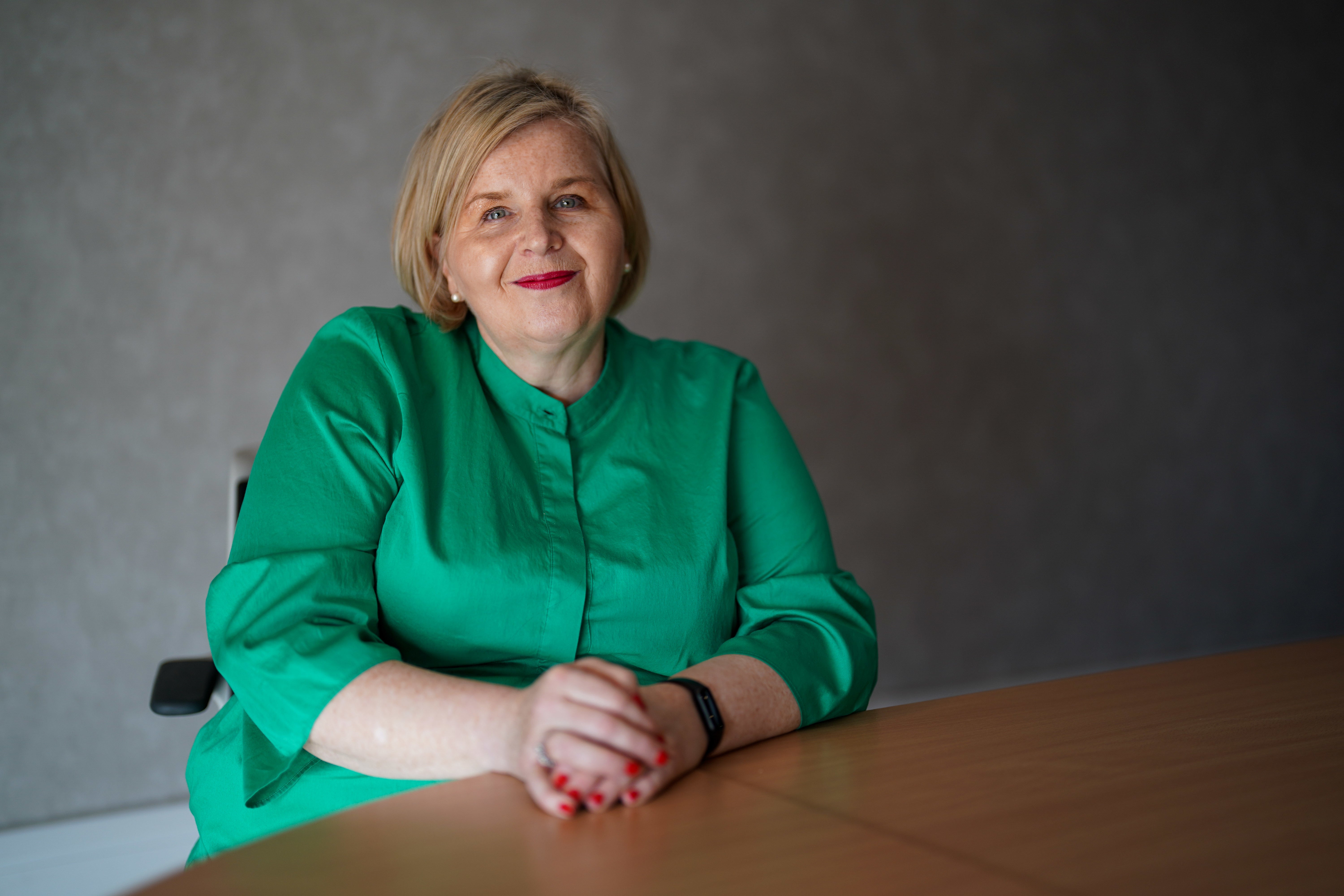
An NHS trust has been fined £1.6 million for "avoidable failings" that led to the deaths of three babies in 2021.
Nottingham University Hospitals (NUH) NHS Trust pleaded guilty at Nottingham Magistrates' Court on Monday to six counts of failing to provide safe care and treatment in relation to the deaths of Adele O'Sullivan, who was 26 minutes old when she died on April 7 2021, Kahlani Rawson, who died aged four days old on June 15 2021, and Quinn Parker, who was one day old when he died on July 16 2021 - and each of their mothers.
The court was told that "serious and systemic failures" exposed all three mothers, Daniela O'Sullivan, Ellise Rawson and Emmie Studencki, and their babies to significant risk of harm.
The three babies are among dozens who have died as a result of poor care by NUH services, as revealed in a 2021 investigation by The Independent.
The court was told that “serious and systemic failures” exposed all three mothers, Daniela O’Sullivan, Ellise Rawson and Emmie Studencki, and their babies to significant risk of harm.
District Judge Grace Leong told the hearing that the “catalogue of failures” in the trust’s maternity unit were “avoidable and should never have happened”.
She said: “Daniela and Adam O’Sullivan, Ellise Rawson and her grandmother Amy, and Emmie Studencki and Ryan Parker placed their trust in the system that was supposed to protect expectant mothers and keep babies safe, and that trust was broken.
“The death of a child is a tragedy beyond words, and where that loss is avoidable the pain is even more profound.
“The grief of a baby is not just about the past, it is about the future that is stolen.
“It is very difficult, if not impossible, to move on from the failures of the trust and its maternity unit.
“The weight of what should have been done different will linger indefinitely.”

In 2021, The Independent revealed dozens of babies had died or been left brain-damaged after errors during childbirth at NUH.
Following that reporting, the then-health secretary Sajid Javid launched an independent inquiry into maternal care at NUH which was expected then to include upwards of 1,500 cases of death or serious injuries to mothers and babies. That number had swelled to 2,000 by the end of last year.
Earlier this month, the inquiry’s chair Donna Ockenden released an update saying that because of some discrepancies, some cases that should have been included relating to babies who had died, babies with brain injury or maternal deaths had not been included.

NUH is the first trust to be prosecuted by healthcare watchdog the Care Quality Commission (CQC) more than once after it was earlier fined £800,000 in 2023 for failures in the care of Wynter Andrews, who died 23 minutes after being born at the Queen’s Medical Centre in Nottingham in September 2019.
The CQC says the trust did not ensure safe care and treatment due to a lack of adequate systems and processes being in place or not being appropriately implemented to ensure staff managed all risks to mothers' and babies’ health and wellbeing.
District Judge Leong highlighted concerns over a lack of escalation of care, an inadequate communications system and a failure to provide “clear and complete” information sharing.
She said: “I accept there were systems in place but there were so many procedures where guidance was not followed or adhered to.
“The failures in combination amounted to systematic failures in the provision of care and treatment.”
The trust has an average turnover of £612 million, but District Judge Leong said she was “acutely aware” that all its funds as a publicly funded body were accounted for and that the trust is currently operating at a deficit of around £100 million.
She said: “I can’t ignore the negative impact this will have… but the significant financial penalty has to be fixed to mark the gravity of these offences and hold the trust to account for their failings.”
The court heard on Monday that Adele O’Sullivan was born following an emergency Caesarean at 29 weeks at Nottingham City Hospital after mother Daniela, a high-risk patient, noticed bleeding and suffered abdominal pain.
Despite this, vaginal examinations were not performed, delaying recognition that Mrs O’Sullivan was in labour and delaying the diagnosis of her bleeding.
Adele was born in “poor condition” and a decision was made to withdraw care, with a post-mortem examination finding she died as a result of severe intrapartum hypoxia.
In a victim impact statement read to the court, Mrs O’Sullivan said she was left “screaming in pain” with no painkillers and despite having a high-risk pregnancy, was not examined for eight hours before Adele was born.
She said: “People who were supposed to help me did not help but harmed me mentally and physically forever.
“We lost our beautiful daughter. Instead of bringing her home I had to leave the labour suite empty-handed in a lot of physical and mental pain.”
The court also heard Ellise Rawson reported to the hospital at 37 weeks with abdominal pain and reduced foetal movements, but there was a delay in performing an emergency Caesarean section and her son Kahlani died of hypoxic-ischemic encephalopathy after four days.
Kahlani’s grandmother Amy Rawson told the court on Monday that her grandson’s death was a “preventable tragedy” that left the family “devastated, broken and numb”.
The court was also told Emmie Studencki went to hospital four times before her son Quinn was born after suffering bleeding.
On the final occasion before Quinn was born, Ms Studencki called an ambulance at around 6.15am on July 14 2021, with paramedics estimating she had lost around 1.2 litres of blood both at home and in the ambulance on the way to City Hospital.
Despite this, the paramedics’ observations did not “find its way into the hospital’s notes”, with staff only recording a 200ml blood loss.
Quinn was “pale and floppy” when he was born via emergency Caesarean section that evening, and despite several blood transfusions, he was pronounced deceased after suffering multiple organ failure and lack of oxygen to the brain.
An inquest into Quinn’s death concluded it was a “possibility” he would have survived had a Caesarean section been carried out earlier.
In a statement, Ms Studencki said the trust’s treatment of her, her son and her partner Ryan Parker had been “contemptuous and inhumane” and they had been left broken.
On Monday, counsel acting on behalf of the trust offered their “profound apologies and regrets” to those affected and said that improvements have been made, including hiring more midwives and providing further training to staff.







